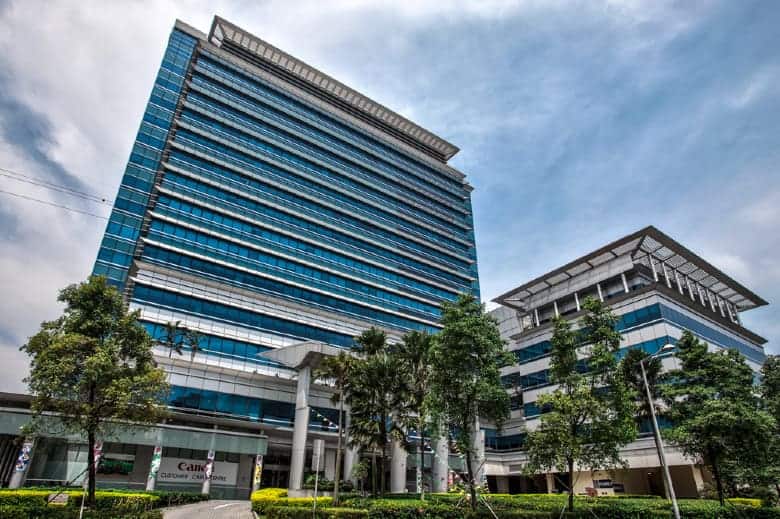
Some hopeful job seekers will be visiting Keppel headquarters in Keppel Bay Tower soon
Singapore-listed Keppel REIT said late Friday that Paul Tham will step down as chief executive of the trust’s manager on 20 October to pursue other opportunities.
The board is evaluating potential candidates to succeed Tham, a one-time management consultant who has sat in the CEO’s chair at the REIT sponsored by developer Keppel Land since the first day of 2019. According to Keppel REIT’s 2020 annual report, Tham was 39 years old at the time the report was published in March of this year.
“On behalf of the board, I would like to express our appreciation to Paul for his contributions to Keppel REIT,” said Penny Goh, chairman of the trust’s manager. “With strong support from Keppel Capital and Keppel Land, the management team led by Paul has done well in executing Keppel REIT’s active portfolio optimisation strategy over the last few years. These efforts have put Keppel REIT in a stronger position to deliver sustainable total returns to unitholders.”
Tham’s departure was announced less than one month after Keppel Corporation said it would be entering into a S$3.4 billion ($2.5 billion) deal to purchase the non-media business of Singapore Press Holdings, in a transaction that would include S$1.16 billion in Keppel REIT shares as part of the compensation for SPH’s assets.
Titanic Turnover
Keppel REIT, which has S$8.7 billion in assets under management and is managed by an affiliate of Singapore’s Keppel Corp, is becoming known for quick turnover in the top role. Tham’s exit marks the second sudden departure by a CEO of the trust’s manager in less than four years, after Jesline Goh served just 28 days in the position in early 2017.

Keppel REIT chief executive Paul Tham is on his way
Long-time Keppel exec Tan Swee Yiow filled in as CEO on an interim basis immediately before and after Goh’s short stint before handing the reins to Tham, who was deputy CEO of the REIT’s manager until his promotion was announced in September 2018.
With Tham now on his way, Shirley Ng, currently deputy CEO and head of investment, will assume the role of acting CEO and work closely with the board and management team on strategic and operational issues during the transition, Keppel REIT said in a release.
In addition to his duties at Keppel REIT, Tham previously served as chief financial officer of Keppel Capital, the asset management arm that owns the trust’s manager.
The graduate of Cornell University and Singapore Management University joined Keppel Group in 2014 and played a key role in the formation of Keppel Capital. Before that, he served as a management consultant for Bain & Company in Singapore from 2010 to 2014.
Dual Portfolios
Tham is heading out after having steered Keppel REIT to encouraging results during the first half of 2021, with the trust’s distributable income having risen 11.5 percent year-on-year to reach S$105.7 million ($78.53 million) and distributions per unit climbing 5 percent beyond the level handed out in the first six months of 2020.

The SPH acquisition would add Singapore’s Paragon Mall to Keppel’s portfolio
The deal with SPH would add the media and property conglomerate’s Paragon, Clementi Mall, Rail Mall and other shopping centres in Singapore, as well as the Figtree Shopping Centre in Sydney and the Westfield Marion mall in South Australia to Keppel’s overall portfolio and potentially set the stage for an eventual merger between Keppel REIT and SPH REIT.
As Keppel REIT’s acting CEO, Ng takes charge of a vehicle that experienced a six-month lull between its two most recent deals.
In July, the REIT announced the sale of its half-stake in a 31-storey Brisbane office building, 275 George Street, to Charter Hall Prime Office Fund for an aggregate sale consideration of A$275 million ($206 million), parting ways with the trust’s original Australian asset.
Before that disposal, Keppel REIT’s last transaction was the purchase of Keppel Bay Tower in Singapore’s HarbourFront area for $492 million, in a deal announced last December.
Keppel REIT’s top-valued asset is an interest in Marina Bay Financial Centre, a mixed-use development comprising three office towers and an underground mall. The trust’s 33.3 percent stake in the asset is worth close to S$3 billion ($2.2 billion).
Leave a Reply